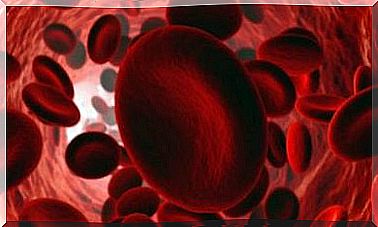Does Vitamin C Help Fight Allergies?
It is very usual, with the change of seasons, to see allergies occur. Here we will show you how you can fight them by consuming vitamin C.

Vitamin C helps fight allergies because it is a powerful natural antihistamine and antiallergic. Thanks to it, the symptoms improve, and over time, future episodes decrease.
Treating allergies is very important because they can be associated with more serious conditions like sinusitis or asthma. This is not their cause, but they complicate the development of these disorders.
It should be noted that the most common allergies are seasonal allergies, which occur due to external factors such as accumulation of dust, animal hair, humidity or high concentrations of pollen. They are mainly due to changes in the seasons, which lead to changes in the environment.
What is Vitamin C?
Vitamins are of great importance for the proper functioning of the body. Vitamin C or ascorbic acid is particularly essential for the health of the skin, bones and connective tissue.
It also has antioxidant properties that promote tissue regeneration and good healing. In addition, it is fundamental in the production of collagen and improves the absorption of minerals such as iron.
These functions in the metabolism occur when the levels of this nutrient are good. The stimulus in repairing lesions is explained by its effect on fibroblasts. These are the cells that make collagen, the most common protein in the body and that keeps the skin turgid. In addition to its antioxidant capacity, ascorbic acid has been associated with an effect of slowing down aging.
Its consumption will not only fight allergies: it will also keep the body in good health. The substance’s general nutritional effect has consequences on the immune system and the action of white blood cells, involved in the mechanisms of reactivity to allergens.

What role does vitamin C play in the treatment of allergies?
Vitamin C has been studied to determine its impact on allergies. It has been shown to boost people’s immune systems during allergic episodes of rhinitis. In other words, it is an adjuvant in the treatments that apply for this disorder.
Thus, it has been identified that ascorbic acid produces a large amount of cytokines, a protein that helps cells to control inflammatory reactions. At the same time, it stimulates T cells to fight off infections that could be related to the allergy.
Regarding how this vitamin fights allergies, we can see that it has effects like decreasing nasal secretions, reddening of the eyes and sneezing. These are the most common and bothersome symptoms, whether they are seasonal or basic allergic processes.
Adequate doses of vitamin C
Vitamin C helps fight allergies if it is consumed regularly and in the doses that the body needs. But don’t worry, you may already be consuming it adequately and not knowing it.
Ascorbic acid is present in many of the foods that we eat regularly. And most notably in vegetables like parsley and broccoli and fruits like currants, strawberries, oranges, lemons, guava and kiwi.
Remember that cooking or storing a food for a long time can cause it to lose its vitamin C concentration. It is therefore best to eat the fruit raw. In the case of vegetables, it will be better to steam them.
The recommended dose of this vitamin depends on the stage of life the person is in. Thus, an adult man should consume a total of 90 milligrams of vitamin C per day, while an adult woman should consume 75 milligrams.
For their part, pregnant women, according to the World Health Organization (WHO), should ingest a maximum of 60 milligrams per day, although this dose may increase during breastfeeding.
Supplements with Vitamin C
Today, it is common to find different dietary supplements that contain vitamin C. It can be consumed if our general practitioner has authorized us to do so.
The consumption of these supplements is particularly recommended for those people who have difficulty in obtaining the vitamin in a natural way. It is nevertheless advisable not to consume too much to avoid adverse effects such as gastrointestinal effects, that is to say heartburn, diarrhea, nausea and vomiting.

Vitamin C helps fight allergies
In fact, vitamin C helps fight allergies, so make sure you eat a balanced diet that includes the fruits and vegetables mentioned. The success of this natural approach lies in its continuity, even when you are not suffering from an allergic episode.
Thanks to this, you will reduce the allergic effects in winter and spring. The symptoms that impact your quality of life will also be reduced. If you have asthma this approach is even more useful!









